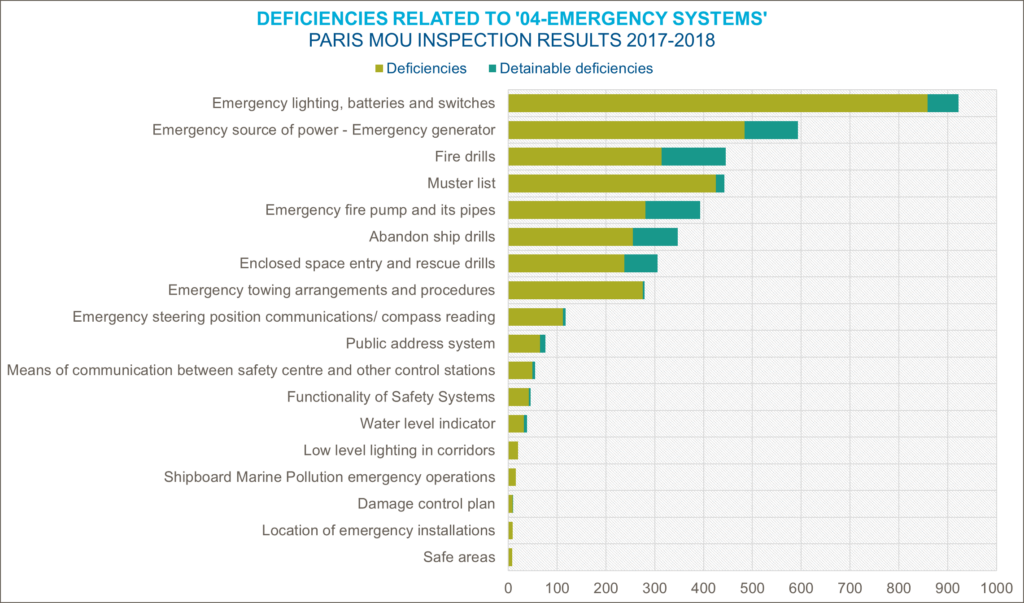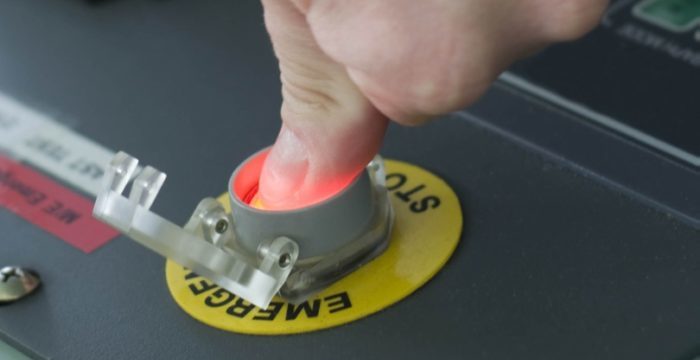This year’s concentrated inspection campaigns by port state authorities will begin on 1 September 2019, focusing on emergency systems and procedures, including emergency drills for crew. For this reason, Gard P&I Club talks about the Potential CIC focus areas, and provides recommendations.
During the implementation period, PSC inspectors will focus on the main deficiencies found during inspections from the previous years. Therefore, the following should be observed in terms of emergency systems:
- ‘Emergency lighting, batteries and switches’ made it to Paris MOU’s list of Top 20 Deficiencies, both in 2017 and 2018;
- ‘Emergency generator’ was one of the most frequent causes of detainable deficiencies among Tokyo MOU’s members states in 2016, 2017 and 2018;
- ‘Emergency lighting, batteries and switches’ and ‘Emergency fire pump and its pipes’ both appeared on the Black Sea MOU’s list of Top 5 detainable deficiencies in 2018;
- Due to the importance of the emergency systems, these deficiencies often raise concerns regarding the effectiveness of a vessel’s Safety Management System as well.
[smlsubform prepend=”GET THE SAFETY4SEA IN YOUR INBOX!” showname=false emailtxt=”” emailholder=”Enter your email address” showsubmit=true submittxt=”Submit” jsthanks=false thankyou=”Thank you for subscribing to our mailing list”]
What is more, the following figure represents all deficiencies related to the category ’04-Emergency Systems’ as recorded by the Paris MOU member states during 2017-2018. In addition to the mentioned emergency systems, the results indicate that on board emergency drills are not always conducted, or recorded, to the satisfaction of PSCOs.

Recommendations
While preparing the upcoming CIC, ship operators and their crews are encouraged to:
- Familiarise themselves with the relevant regulatory requirements;
- Review any previous PSC deficiencies related to emergency systems;
- Ensure all emergency equipment and systems are installed and operating properly;
- Evaluate the effectiveness of maintenance of emergency equipment and systems, such as emergency generators and fire pumps;
- Ensure crew familiarity with emergency systems and procedures and that drills are conducted and properly documented.
What is more, Gard strongly recommends operators to use this CIC as a reminder of the importance of ensuring readiness of crew and equipment in the event of an emergency.
It is important to carry out regular training for different emergency scenarios as well as to make sure that those involved in emergency drills understand that the purpose of training is to prevent and/or limit the consequences of accidents – and not simply to satisfy the regulators
Moreover, according to SOLAS Regulation III/19, every crew member must take part in at least one abandon ship drill and one fire drill every month and crew members with enclosed space entry or rescue responsibilities must participate in an enclosed space entry and rescue drill once every two months.
Finally, SOLAS highlights that ‘drills shall, as far as practicable, be conducted as if there were an actual emergency’ and that dates and details of the drills must be recorded in the ship’s logbook.




























































